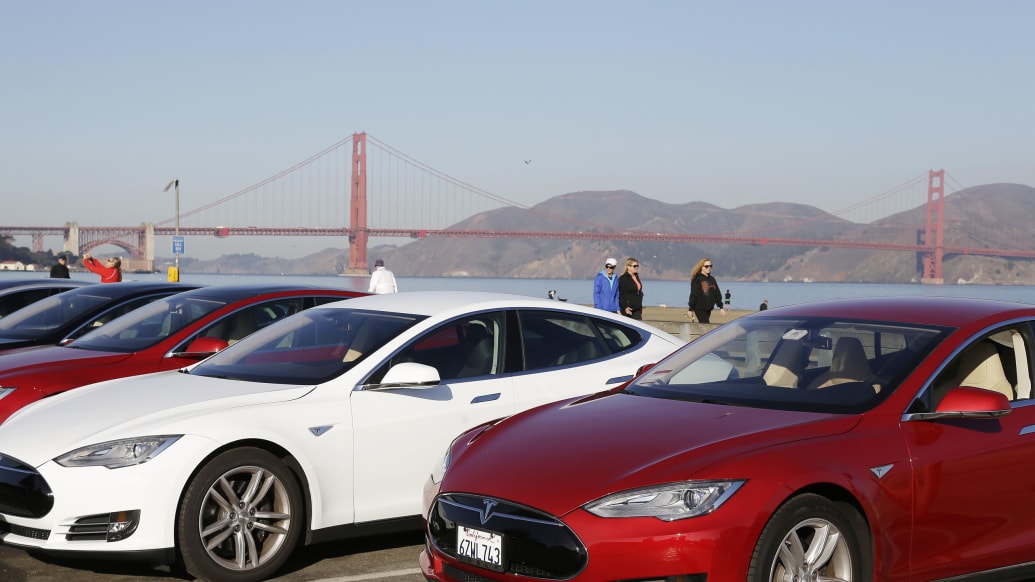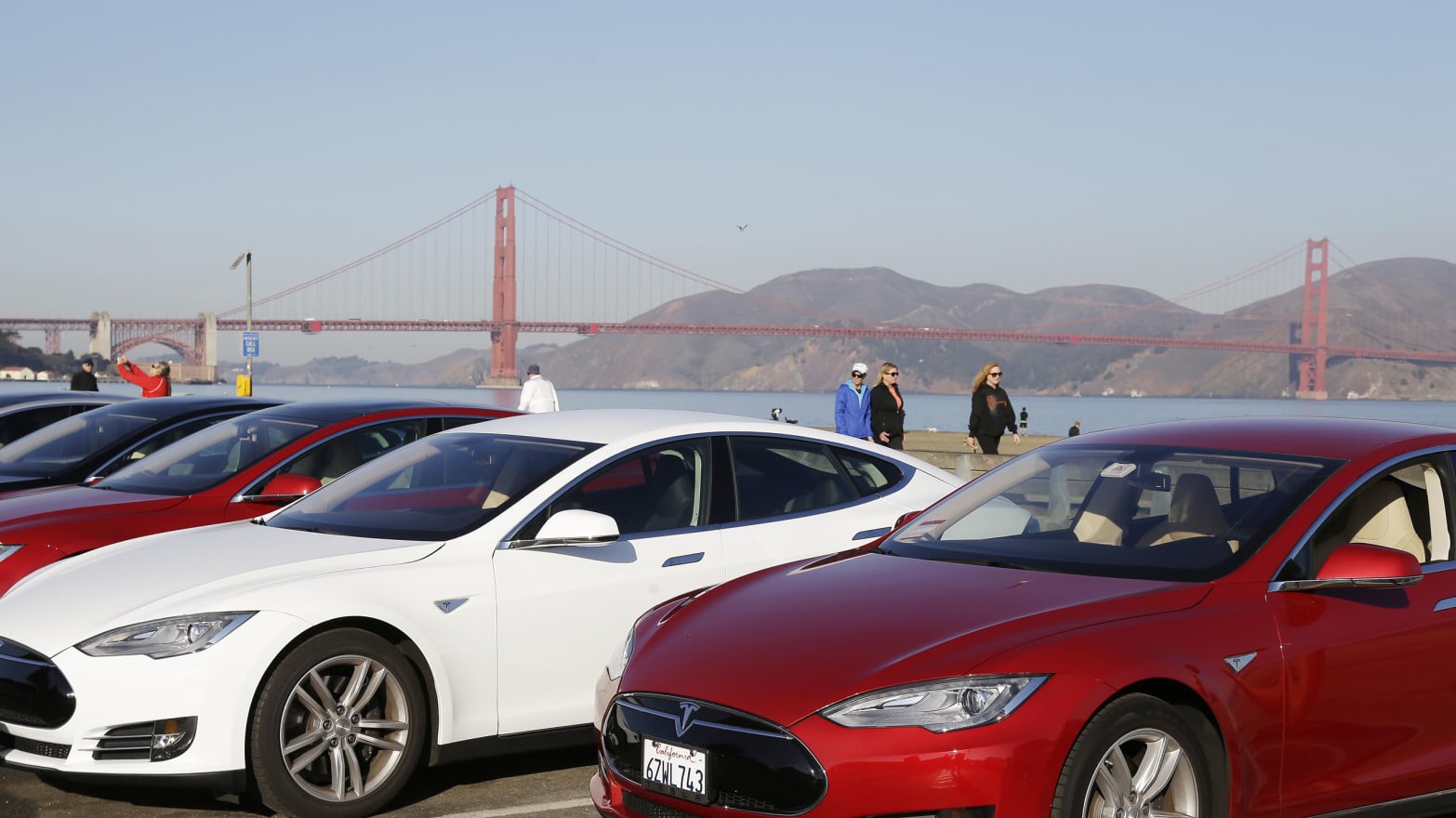It’s been a while since we’ve checked in on Tesla, the electric-car manufacturer that inspires love-hate reactions among investors and the public. The brainchild of serial entrepreneur Elon Musk, Tesla sells an expensive electric sports car.

The only thing as expensive as the Tesla Model S, which retails for about $60,000, is the company’s stock. Between October 2012 and October 2013, it rose from $31 to $190, up more than six-fold, giving the company a stock market valuation of $23 billion. That was about one-third the value of Ford and nearly one-half the value of General Motors, both of which sell about 100 times more cars than Tesla does.
To devotees of rationality in markets, Tesla was a thumb in the eye. The company is as much a triumph of electrical engineering, but also financial engineering. Tesla sales are subsidized by taxpayers in the form of hefty tax credits for green cars. The company also makes money by selling zero emission vehicle certificates to automakers who are required to produce such cars, but don’t, in certain states. In the second quarter (PDF), Tesla reaped $51 million, or 13 percent of its revenues, from such sales. In that quarter, which ended on June 30, the company sold about 2,000 cars a month and reported a relatively small ($30 million) loss.
Those results would hardly seem to warrant the massive ramp-up in the company’s stock price. Between August 7, when the company’s second-quarter sales were reported, and October 1, investors pushed the stock up nearly 50 percent. Elon Musk himself noted that investors might be getting a little ahead of themselves. On October 25, at the opening of a Tesla store in London, he noted that “the stock price that we have is more than we have any right to deserve.”
But investors ignored Musk, at least for another week or two. Then in the last few weeks, Tesla has crashed—figuratively and literally.
Last week, on November 5, it reported third-quarter earnings (PDF) The news was generally positive. Sales and production were up. But revenues from zero emission certificates fell sharply, from $51 million in the second quarter to $10 million in the third quarter. And the projection for future results was less strong than investor had expected.
The results helped spur a sharp decline in the company’s stock. Indeed, it was as if investors collectively woke up and realized they had been giving the company an insanely rich valuation.
Suddenly, the news flow began to turn negative. Early adapter George Clooney told Esquire that he was less than satisfied with his Tesla experience. News outlets seized on reports that, on three occasions in the past six weeks, Tesla cars have caught on fire. That’s never a good sign. Having a battery run out of power prematurely is an inconvenience. When luxury good spontaneously combusts, it tends to tamp down demand.
Over four trading days last week, as investors digested the earnings and safety news, the company’s stock fell from $180 to about $140, a decline of more than 20 percent. From its peak on October 1, Tesla’s value has fallen by more than one quarter.
But Tesla seems to win even when it crashes and burns. Yes, the stock has fallen—all the way to the level it was at in August. It’s still up nearly four-fold for the calendar year, and is worth nearly $18 billion. Meanwhile, the company says it is having difficulty meeting rising demand around the globe, which is a high-class problem. Sure, the universe of Americans willing to plunk down for an electric sports car is small. But it is aiming at a global audience. And in some markets, the high cost of gasoline and generous incentives make the Tesla quite appealing. In Norway (population 5 million) the Tesla was the highest-selling vehicle in September. And the company is just starting to get cars into China, which is emerging as a robust luxury market.
To a large degree, Tesla and its stock seem to be defying natural forces of gravity. But that’s not all that surprising. There’s something lots of business and economics writers miss when writing about the car industry. Car purchases aren’t always about economic rationality and functionality. People buy vehicles because they’re status symbols, or because they want to express themselves, or because certain cars function as cultural markers and personal advertisements. Just as driving a Hummer marked you as a certain kind of person in 2005, driving a Tesla marks you as a certain kind of person in 2013. Owners prowl around wealthy suburbs announcing themselves as wealthy, carbon-free, early adopters with money to burn. People who can’t afford a Tesla but still love what the company stands for, purchase Tesla’s stock out of the same impulse. Some raving fans do both.
And no blow-up—financial or physical—will deter them. Juris Shibayama, the Tennessee resident who owned a Tesla that caught on fire last week, wrote on the company’s blog that “This experience does not in any way make me think that the Tesla Model S is an unsafe car. I would buy another one in a heartbeat.”

